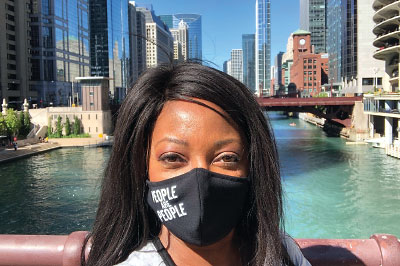APA Applauds Passage of COVID-19 Relief Package
Abstract
The $1.9 trillion package allocates billions of dollars toward mental and substance use disorder services and efforts to promote psychiatric well-being among health care professionals.
On March 11, President Joe Biden signed into law the American Rescue Plan Act of 2021 (HR 1319), a sweeping $1.9 trillion coronavirus relief package.
In a news release, APA applauded the package’s passage, noting that it includes about $4 billion in funding for programs that support prevention of and treatment for mental and substance use disorders (SUDs).
“We will not recover sufficiently from this pandemic long term unless we address our mental health with the same urgency and attention as our physical health,” APA CEO and Medical Director Saul Levin, M.D., M.P.A., said in the media release. “This package is a huge step in the right direction, and we look forward to working with Congress and the administration to implement policies and services that will help all of our patients.”
The package included numerous provisions related to mental health care, including the following:
$1.5 billion each for the Community Mental Health Services Block Grant and the Substance Abuse Prevention and Treatment Block Grant
Funding for several community behavioral health services, including $10 million for the National Child Traumatic Stress Network, $30 million for Project AWARE (Advancing Wellness and Resiliency in Education), $20 million for youth suicide prevention, and $420 million for Certified Community Behavioral Health Clinics
$15 million in Medicaid planning grants that allow states to develop community-based mobile crisis services for individuals experiencing a mental health crisis
$80 million for pediatric mental health services
$50 million to address increased community behavioral health needs worsened by the COVID-19 pandemic and to promote care coordination within communities
Additionally, the package included provisions from the Dr. Lorna Breen Health Care Provider Protection bill, which aims to improve mental and behavioral wellness among health care workers and to prevent burnout. American Rescue Plan Act provisions from the Dr. Breen bill include $80 million for strategic training to reduce and address suicide, burnout, mental health conditions, and SUDs among health care professionals; $20 million for education and awareness campaigns to encourage health care workers to seek support and treatment for mental health and SUD conditions, as well as teach providers how to identify risk factors for such conditions; and $40 million for the establishment or enhancement of programs administered by health care professionals to promote mental health and well-being in their health care workforce.

“People understand the mental health toll that the pandemic has taken on those with no prior history of mental illness, and I’m hopeful they will now extend empathy toward people who have been struggling with mental health disorders for a long time,” says Dionne Hart, M.D.
The provisions adopted from the Dr. Breen bill are especially important given what the past year has been like for health care workers, explained Dionne Hart, M.D., a member of APA’s Council on Advocacy and Government Relations and chair of the APA Assembly Committee on Public and Community Psychiatry.
“There has been much discussion about health care workers being heroes,” she said. “Many frontline health care workers hearing that message may feel they have to fit that mold, which sometimes means not asking for help or putting themselves at more risk than necessary. We need to pay attention to how our health care workers are doing and understand how heavily burdened they are, especially during the pandemic.”
The package also improves access to health insurance. It extends health insurance subsidy eligibility for individuals who have incomes over 400% of the federal poverty level and purchase their health coverage through the Affordable Care Act’s health insurance marketplaces. The package also allows states to expand Medicaid coverage for pregnant and postpartum women up to a full year after delivery.
The COVID-19 pandemic has shined a stark light on a variety of issues related to mental health care, particularly lack of access for many, and too little funding for community programs to keep them running, Hart said.
Several recent studies have highlighted the tremendous uptick in virtual mental health visits that took place last year, as well as the need for greater access to care. A report released in February by Milliman found that behavioral health care services dropped significantly in early 2020, but then began to increase quickly starting last June.
“This suggests that, as behavioral health stressors and needs have increased during the pandemic, many people have continued to seek out and receive behavioral health treatment,” the report stated. “However, it is not clear whether the use of behavioral health services has risen sufficiently to match increased needs created by the pandemic.”
Similarly, a study published March 6 in the American Journal of Preventive Medicine found that there was more than a 20-fold increase in telemedicine use following the start of the pandemic, but the incidence of office-based visits dropped by almost half and was not fully offset by the increase in telemedicine visits. Further, the report noted that the increase was greatest in counties with low levels of poverty, and low-income communities saw a lower uptake of telemedicine. “Policymakers should continue to expand reimbursement for telehealth services and also update clinical guidelines to encourage health care practitioners to use telehealth,” the authors concluded.
“We have an opportunity right now to build stronger and better resources for people living with a mental illness by putting resources into communities, which is where they can do the most good,” Hart said.
Hart urged her fellow psychiatrists to reach out to their lawmakers if they voted in favor of the package and thank them. “We have calls to action routinely in which we ask legislators to vote for something,” she said. “It is just as important that we thank them for what they’ve done now.” ■



